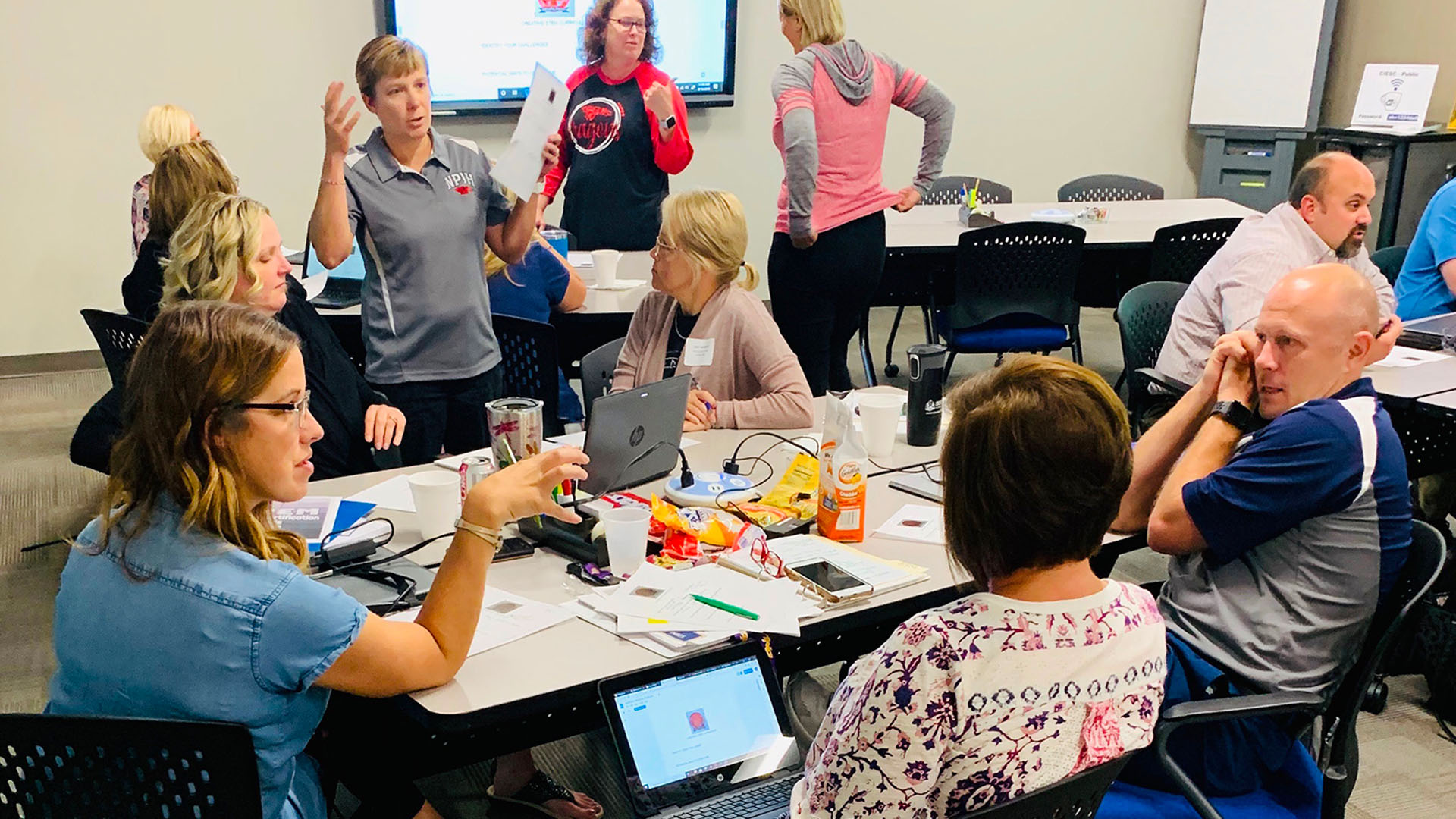We are trained as educators to be the content experts. We’re told in our pre-service preparation that we are the conveyor of knowledge, and our job is to impart that knowledge to our students. I would argue, after 30 years in education, that is NOT our job. Our job in today’s world is to create problem-solvers and critical thinkers of our students. When we can Google any information in seconds, we need students who can take that immediate information and assimilate it, apply it, and own it. We don’t need students who can regurgitate information, that’s what we have Google for. When we think about how we take this charge for educators, to create problem-solvers and critical thinkers, we have to examine many facets of our teaching practice. One of those facets is our questioning techniques. Are we asking students questions that can be answered by Google, or are we asking thought-provoking, deep, and meaningful questions? If we ask the latter, how do we get students to engage in that type of question? We have trained students to be “answer getters.” They just want to know the steps they need to take to get the answer. They want to follow steps, not devise their own to solve a problem. Unfortunately, we spend too much instructional time giving into that type of surface-level learning. Is knowledge important for a student? Yes! But is it all of what education should be? My argument is, no! In 2005, the article, “Questioning our Patterns of Questioning” was published by the NCTM (National Council of Teachers of Mathematics). This article by Herbal-Eisenmann and Breyfogle changed my teaching practices significantly. I began to look at how I was interacting with students and what I was doing to elicit student thinking. In the article, the authors identify two types of questioning patterns we use in the math classroom: Funneling and Focusing.

The pattern of funneling is when we ask a series of questions that lead a student down the path we have identified is the “right” path. We have a destination in mind, a pathway to that destination in mind, and funneling can get us there with the students in the most direct way. When we do this, it’s our thinking, our pathway that is revealed, not the students’. In addition to simply dragging students to a solution, we aren’t honoring student thought. They aren’t asked to share their path. We leave the student out of the equation. We don’t give them a voice. Without student accountability to problem-solving and critical thinking, they can’t take ownership of their learning, which leads to the feeling of success being taken away, as well. Focusing is the opposite pattern of questioning. The teacher asks a series of questions that reveal student thinking, a student’s pathway to the solution. The teacher asks open-ended questions, allowing the student to form their own thoughts about what they are learning. Students get a significant feeling of success when the questions focus on their thoughts, and they see value in their contribution to the discussion. They feel like mathematicians! As that success is experienced, the students want more of it, and they’re more willing to share their thinking and contribute to the dialogue. They become the critical thinkers we want them to be. We have to examine the kinds of educators we are. We need to look at how something as simple as the type and pattern of questions we ask can move a student from memorization to true analysis and a feeling of accomplishment that leaves them wanting more.
Resources
Please login or register to claim PGPs.
Alternatively, you may use the PGP Request Form if you prefer to not register an account.


